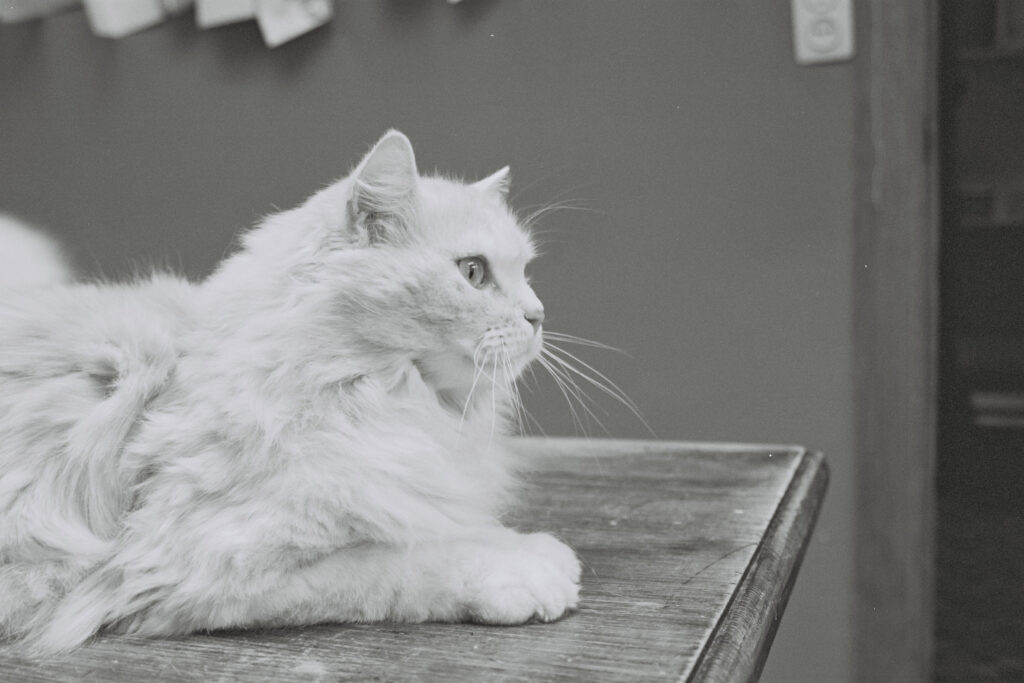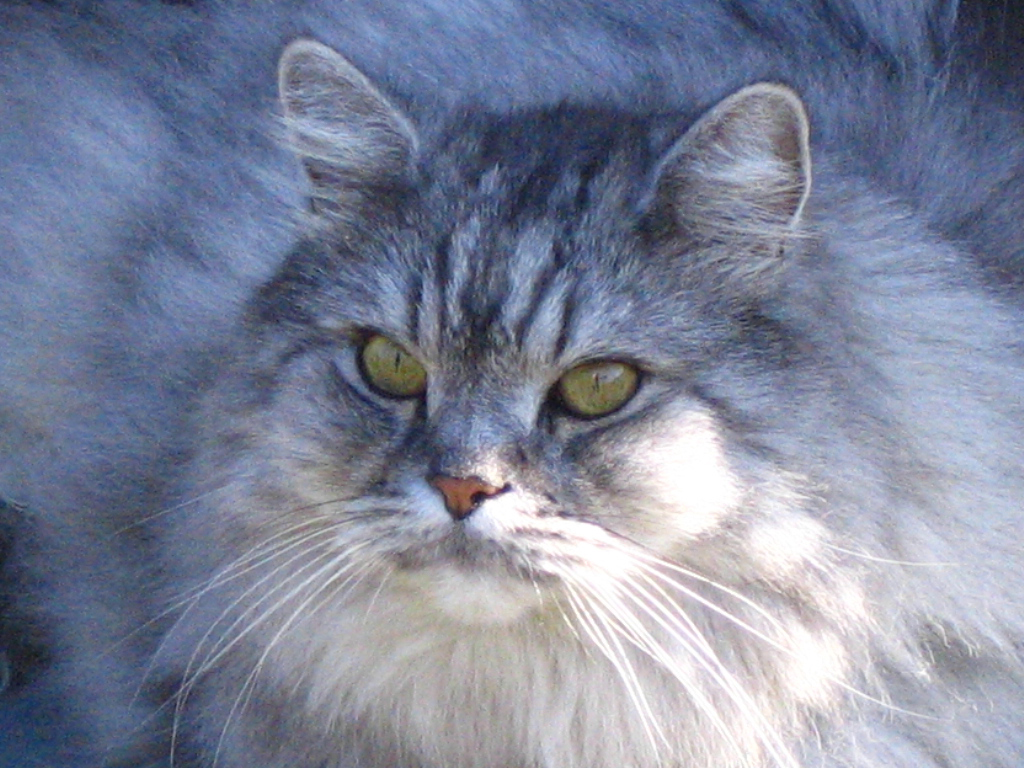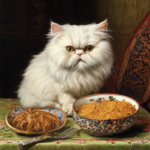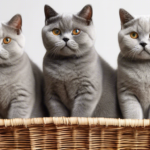## Introduction
Persian cats are known for their luxurious coats and regal appearance. As a pet owner, you want to ensure that your Persian cat receives a well-balanced diet to maintain their health and beauty. While commercial cat food is essential, you may wonder if it’s safe to share some human foods with your feline friend. In this article, we will explore a variety of human foods that Persian cats can enjoy in moderation.
Proteins That Are Safe for Persian Cats
As obligate carnivores, Persian cats require a diet rich in protein. Protein is essential for maintaining their muscle mass and overall health. However, it’s crucial to provide lean sources of protein and avoid excessive fat content. Here are some protein-rich foods that Persian cats can safely consume:
- Skinless Chicken: Chicken is an excellent source of lean protein for Persian cats. Remove any excess fat and ensure that the chicken is thoroughly cooked before feeding it to your cat.
- Lean Beef: Lean cuts of beef can also be offered to your Persian cat in moderation. Trim off any visible fat before serving.
- Liver: Liver is a nutrient-dense organ meat that can be included in your cat’s diet occasionally. Limit the portion size to prevent an excessive intake of certain vitamins and minerals.
- Lamb: Cooked lamb can be a tasty treat for your Persian cat. Ensure that it is lean and free from seasonings or additives.
- Lean Deli Meats: Deli meats, such as turkey or roast beef, can be given to your Persian cat as an occasional treat. Make sure they are low in sodium and do not contain any harmful additives.
- Cooked Eggs: Eggs are a great source of protein and can be a part of your cat’s diet. Cook them thoroughly before offering them to your Persian cat.
Remember, each cat is unique, and some may have specific dietary requirements or allergies. It’s always best to consult your veterinarian before introducing any new foods into your cat’s diet.

Vegetables That Are Safe for Persian Cats
Although Persian cats are primarily carnivorous, some vegetables can provide additional nutrients and help with digestive issues. Here are a few vegetables that Persian cats can enjoy in moderation:
- Pumpkin/Squash: Pumpkin or squash can be a healthy addition to your cat’s diet. These vegetables are rich in fiber and can aid in digestion.
- Peas: Cooked peas can be a nutritious snack for your Persian cat. They are a good source of vitamins and minerals.
- Cucumber: Cucumbers can be a refreshing treat for your cat. Make sure to remove the seeds and peel before offering them.
- Carrots: Cooked or steamed carrots can be given to your Persian cat occasionally. They are rich in beta-carotene, which is beneficial for their overall health.
- Broccoli: Broccoli is a nutrient-dense vegetable that can be included in your cat’s diet. However, feed it in small quantities to avoid digestive issues.
- Asparagus: Asparagus can provide some vitamins and minerals to your Persian cat. Cook it thoroughly before offering it as a treat.
- Green Beans: Green beans can be a healthy snack option for your cat. They are low in calories and high in fiber.
- Spinach: While spinach can be beneficial for some cats, it is important to note that it can cause urinary or kidney problems in others. If your Persian cat has a history of urinary issues, avoid feeding them spinach.
Including a variety of vegetables in your Persian cat’s diet can add nutritional value. However, it’s important to introduce them gradually and monitor your cat’s response to ensure there are no adverse reactions.
Grains That Are Safe for Persian Cats
Cats are primarily carnivorous, and their digestive systems are not designed to process large amounts of carbohydrates. However, some grains can be given to Persian cats in moderation. Here are a few grains that can be included in their diet:
- Cooked Corn/Polenta: Cooked corn or polenta can be offered to your Persian cat as an occasional treat. Ensure that it is cooked and free from any seasonings.
- Couscous/Millet: Some cats enjoy the tiny texture of couscous or millet. These grains can be given to your Persian cat in small amounts as a treat.
- Oatmeal: Plain oats can be a healthy source of carbohydrates for your cat. However, avoid flavored or sweetened oatmeal and limit the portion size.
- Mashed Sweet Potatoes: Mashed sweet potatoes can be a nutritious addition to your cat’s diet. Serve them plain, without any added ingredients.
It’s important to note that grains should only be a small part of your Persian cat’s overall diet. Monitor their weight and ensure that the majority of their food comes from high-quality protein sources.

image source : freeimages
Fruits That Are Safe for Persian Cats
While cats are not obligate fruit eaters, some fruits can be offered to Persian cats as a treat. Fruits can provide additional vitamins and minerals. Here are a few fruits that Persian cats can enjoy:
- Bananas: Bananas can be a healthy and tasty treat for your Persian cat. They can be frozen and blended to create a creamy texture.
- Blueberries: Blueberries are rich in antioxidants and can be given to your cat in their raw or frozen form.
- Watermelon/Cantaloupe/Honeydew: These melons can be a refreshing treat for your Persian cat. Make sure to remove any seeds before offering them.
- Peeled Apples: Apples can be given to your cat in small, peeled portions. Avoid the seeds and core, as they can be harmful.
As with any new food, introduce fruits slowly and monitor your cat’s response. Some cats may not enjoy the sweetness of fruits, while others may develop digestive issues. Always consult your veterinarian before adding any new foods to your cat’s diet.
Dairy Products That Are Safe for Persian Cats
While cats are lactose intolerant to some extent, there are certain dairy products that can be given to Persian cats in small quantities. Here are a few dairy options that can be offered as occasional treats:
- Hard Cheeses: Hard cheeses like cheddar or gouda can be given to your Persian cat in moderation. They are low in lactose and can be a tasty snack.
- Low Lactose Cheeses: Cottage cheese is a low lactose cheese option that can be included in your cat’s diet. Offer it in small amounts as a treat.
- Yogurt: Plain, low-fat yogurt can be given to your Persian cat occasionally. It provides probiotics and can support a healthy digestive system.
Remember, dairy products should only be given in small amounts and as an occasional treat. Watch for any signs of digestive upset or intolerance.
Fish That Are Safe for Persian Cats
Fish is often associated with cats, and many Persian cats enjoy the taste of fish. However, it’s important to offer fish in moderation due to potential mercury content and vitamin E depletion. Here are some fish options that Persian cats can safely consume:
- Cooked Salmon/Tuna: Cooked salmon or tuna can be given to your Persian cat as a special treat. Ensure that it is cooked thoroughly and free from any seasonings.
- Canned Fish: Canned fish, such as sardines or mackerel, can be offered to your Persian cat occasionally. Choose varieties that are packed in water and not oil.
- Fish Oil: Small quantities of fish oil can be beneficial for your cat’s skin and coat health, especially during the winter months. Consult your veterinarian for appropriate dosage.
It’s important to note that fish should not be the primary source of protein for Persian cats. It should be offered as a supplemental treat and not as a regular part of their diet.
Foods to Avoid Feeding Persian Cats
While some human foods can be safely shared with Persian cats, there are several foods that should be strictly avoided. These foods can be toxic or harmful to your cat’s health. Here is a list of foods that should never be fed to Persian cats:
- Fat Trimmings: Excess fat from meat can cause digestive upset and pancreatitis in cats. Avoid feeding your Persian cat fatty meat trimmings.
- Garlic/Onions: Garlic and onions can cause damage to a cat’s red blood cells, leading to anemia. Keep these ingredients away from your Persian cat’s diet.
- Coconut Milk: While coconut milk may seem harmless, it contains high levels of saturated fats that can be detrimental to your cat’s health. Stick to plain water or cat-friendly milk alternatives.
- Alcohol: Alcohol can be extremely toxic to cats, causing symptoms such as vomiting, disorientation, and even coma. Keep all alcoholic beverages away from your Persian cat.
- Caffeine/Coffee: Caffeine can be fatal to cats, even in small amounts. Keep coffee, tea, and other caffeinated beverages out of your cat’s reach.
- Grapes/Raisins: Grapes and raisins can cause kidney failure in cats. Even small quantities can be toxic, so be sure to keep these fruits away from your Persian cat.
- Seeds: Seeds from fruits such as apples, grapes, or watermelons can be a choking hazard for cats. Remove all seeds before offering fruits to your Persian cat.
- Raw Fish: Raw fish can contain bacteria and parasites that can cause digestive issues in cats. Always ensure that fish is thoroughly cooked before offering it to your Persian cat.
- Bread Dough: Uncooked bread dough can expand in a cat’s stomach, leading to bloating and potential digestive obstructions. Keep bread dough away from your Persian cat.
- Nuts: Many nuts, such as almonds or walnuts, can be toxic to cats. Avoid feeding your Persian cat any type of nuts.
- Chocolate: Chocolate contains theobromine, which is toxic to cats. Even small amounts can cause symptoms such as vomiting, diarrhea, and increased heart rate. Keep all chocolate products away from your Persian cat.
- Cooked Bones: Cooked bones can splinter and pose a choking hazard for cats. Avoid feeding your Persian cat any cooked bones.
- Milk: While kittens can tolerate milk, most adult cats are lactose intolerant. Avoid giving your Persian cat regular cow’s milk, as it can cause digestive upset.
- Chives: Chives, along with other members of the onion family, can be toxic to cats. Keep chives and other onion-related ingredients away from your Persian cat.
- Candy/Gum: Candy and gum can contain xylitol, an artificial sweetener that is toxic to cats. Keep all sweet treats away from your Persian cat.
- Human Medications/Supplements: Human medications and supplements can be extremely dangerous for cats. Keep all medications out of your Persian cat’s reach.
- Xylitol (artificial sweetener): Xylitol, a common artificial sweetener, is toxic to cats. Ensure that all foods and treats are free from xylitol.
When feeding your Persian cat human food as a treat, it’s important to limit their intake to approximately 20 calories per day to prevent weight gain. Always prioritize a well-balanced commercial cat food diet and consult your veterinarian if you have any questions or concerns about your Persian cat’s dietary needs.
Conclusion
In conclusion, while Persian cats have specific dietary requirements, there are some human foods that can be safely shared with them in moderation. Protein-rich foods like skinless chicken and lean beef can be included in their diet. Certain vegetables, grains, fruits, dairy products, and fish can also be offered as treats. However, it’s essential to avoid feeding them foods that can be toxic or harmful, such as garlic, onions, chocolate, and alcohol. Always consult your veterinarian before introducing any new foods into your Persian cat’s diet.
By providing a balanced and varied diet, you can ensure that your Persian cat stays healthy and happy for years to come. Remember, each cat is unique, and it’s important to monitor their individual response to new foods. Enjoy the joy of treating your Persian cat with safe and healthy human foods in moderation.
*Disclaimer: This article is for informational purposes only and should not replace professional advice from a veterinarian.






